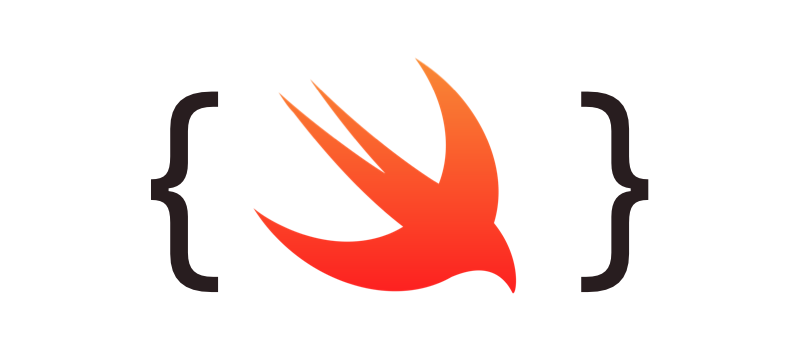
- 특정 패턴과 결합하여 조건을 추가하는 역할을 한다
- 조건 추가 or 특정 타입 제한할 때 사용
→ 특정 패턴에 Bool 타입 조건을 지정하거나 어떤 타입의 특정 프로토콜 준수 조건을 추가하는 등의 기능
let tuples: [(Int, Int)] = [(1, 2), (1, -1), (1, 0), (0, 2)]
// 값 바인딩, 와일드카드 패턴
for tuple in tuples {
switch tuple {
case let (x, y) where x == y: print("x == y")
case let (x, y) where x == -y: print("x == -y")
case let (x, y) where x > y: print("x > y")
case (1, _): print("x == 1")
case (_, 2): print("y == 2")
default: print("\(tuple.0), \(tuple.1)")
}
}
/*
x == 1
x == -y
x > y
y == 2
*/
var repeatCount: Int = 0
// 값 바인딩 패턴
for tuple in tuples {
switch tuple {
case let (x, y) where x == y && repeatCount > 2: print("x == y")
case let (x, y) where repeatCount < 2: print("\(x), \(y)")
default: print("Nothing")
}
repeatCount += 1
}
/*
1, 2
1, -1
Nothing
Nothing
*/
let firstValue: Int = 50
let secondValue: Int = 30
// 값 바인딩 패턴
switch firstValue + secondValue {
case let total where total > 100: print("total > 100")
case let total where total < 0: print("wrong value")
case let total where total == 0: print("zero")
case let total: print(total)
} // 80- 타입캐스팅 패턴과 where 절의 활용
let anyValue: Any = "ABC"
switch anyValue {
case let value where value is Int: print("value is Int")
case let value where value is String: print("value is String")
case let value where value is Double: print("value is Double")
default: print("Unknown type")
} // value is String
var things: [Any] = [Any]()
things.append(0)
things.append(0.0)
things.append(42)
things.append(3.14159)
things.append("hello")
things.append((3.0, 5.0))
things.append({ (name: String) -> String in "Hello, \(name)" })
for thing in things {
switch thing {
case 0 as Int:
print("zero as an Int")
case 0 as Double:
print("zero as a Double")
case let someInt as Int:
print("an integer value of \(someInt)")
case let someDouble as Double where someDouble > 0:
print("a positive double value of \(someDouble)")
case is Double:
print("some other double value that I don't want to print")
case let someString as String:
print("a string value of \"\(someString)\"")
case let (x, y) as (Double, Double):
print("an (x, y) point at \(x), \(y)")
case let stringConverter as (String) -> String:
print(stringConverter("Michael"))
default:
print("something else")
}
}
// zero as an Int
// zero as a Double
// an integer value of 42
// a positive double value of 3.14159
// a string value of "hello"
// an (x, y) point at 3.0, 5.0
// Hello, Michael- 프로토콜 익스텐션에 where 절을 사용하면 이 익스텐션이 특정 프로토콜을 준수하는 타입에만 적용될 수 있도록 제약을 줄 수도 있음
protocol SelfPrintable {
func printSelf()
}
struct Person: SelfPrintable { }
extension Int: SelfPrintable { }
extension UInt: SelfPrintable { }
extension String: SelfPrintable { }
extension Double: SelfPrintable { }
extension SelfPrintable where Self: FixedWidthInteger, Self: SignedInteger {
func printSelf() {
print("FixedWidthInteger와 SignedInteger을 준수하면서 SelfPrintable을 준수하는 타입 \(type(of:self))")
}
}
extension SelfPrintable where Self: CustomStringConvertible {
func printSelf() {
print("CustomStringConvertible을 준수하면서 SelfPrintable을 준수하는 타입 \(type(of:self))")
}
}
extension SelfPrintable {
func printSelf() {
print("그 외 SelfPrintable을 준수하는 타입 \(type(of:self))")
}
}
Int(-8).printSelf() // FixedWidthInteger와 SignedInteger을 준수하면서 SelfPrintable을 준수하는 Int 타입
UInt(8).printSelf() // CustomStringConvertible을 준수하면서 SelfPrintable을 준수하는 타입 UInt
String("yagom").printSelf() // CustomStringConvertible을 준수하면서 SelfPrintable을 준수하는 String 타입
Double(8.0).printSelf() // CustomStringConvertible을 준수하면서 SelfPrintable을 준수하는 타입 Double
Person().printSelf() // 그 외 SelfPrintable을 준수하는 타입 Person()